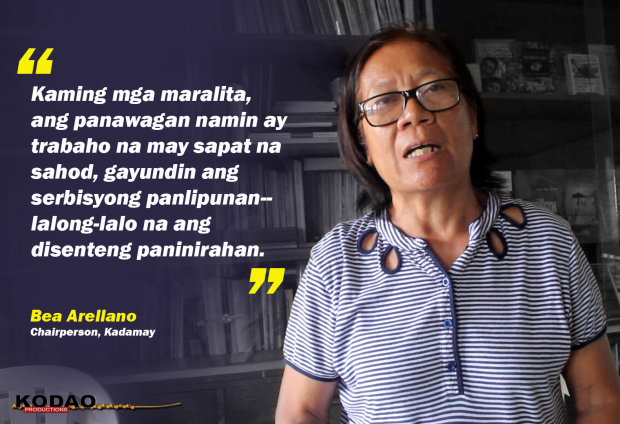Budget for infrastructure towers over health, social protection, MSME support–IBON
by IBON Media & Communications
Research group IBON hit the Duterte administration for prioritizing transport infrastructure in its proposed 2021 budget over the country’s more pressing needs at the height of the pandemic crisis. The group said resources for health, social protection, and production support are more urgent areas needing attention to genuinely usher the economy to recovery but are only receiving paltry amounts.
The budget for infrastructure in the proposed 2021 General Appropriations Act (GAA) is at Php1.1 trillion, of which only Php2.3 billion or 0.21% would be used to build hospitals and health centers. Such a token allocation for health infrastructure shows how unconcerned government is about the public health emergency that the country is facing and about ensuring affordable health care, IBON said.
The group said that the need for medical facilities and equipment became obvious as the country’s health system was overwhelmed with the swelling number of COVID-19 cases . Yet the government barely increased the share of health facilities in the infrastructure budget from last year, IBON said. Of the Php989.2 billion budget for infrastructure in 2020, only Php1.8 billion or 0.18% was allotted for hospitals and health centers. The allocation for health infrastructure has been dropping significantly under the Duterte administration. In 2017, the infrastructure outlay for hospitals and health centers was Php18.6 billion.
In contrast, IBON said, the infrastructure outlay for road networks is getting much of the funds at Php404 billion or 36% of the 2021 proposed budget for infrastructure. In 2020, road networks were given Php349.8 billion or 35.4% of the Php989.2 billion infrastructure budget.
IBON also noted that the proposed Php1.1 trillion infrastructure budget towers over recommended allocations for health, social protection, and support for micro, small and medium enterprises (MSMEs).
The proposed 2021 health budget is only Php212.3 billion. The group observed that while the absolute amount is an increase from the allocation for health in the 2020 GAA, areas important to dealing with the pandemic are defunded in 2021. IBON said that it is ironic that the allotment for facilities enhancement, epidemiological surveillance, laboratories, research, information technology, and human resource capacity management, for instance, were all reduced right when the country’s public health system sorely needs a boost.
IBON also said that government’s questionable bias for infrastructure becomes all the more conspicuous when comparing its budget with social protection budget. The group criticized government’s decreasing the proposed social protection allotment to Php454.1 billion from last year’s Php534.3 billion even as millions of Filipinos are reeling from massive joblessness and collapsing household incomes due to the COVID lockdowns.
The support program for MSMEs decreased by 7.4% in 2021 compared to 2020. Even taking the Agricultural Competitiveness Fund of the Department of Agriculture (DA) and the Small Business Corporation program under the Department of Trade and Industry (DTI together, MSMEs only get Php5.1 billion in the proposed 2021 budget.
IBON added that despite government hype about focusing on the digital economy through improved internet systems, demand for which increased during the pandemic, the budget for communication networks also decreased in 2021. The 2021 infrastructure outlay for Communication Networks is just Php106 million or a 30% decrease from PHp150.8 million in 2020.
From 2017-2021, the bulk of infrastructure projects (Php364 billion) were in the National Capital Region, followed by Region III (Php94.8 billion), the Autonomous Region of Muslim Mindanao (Php79.5 billion) where Marawi is located, and Region IV-B (Php79.1 billion). In the same period, nationwide infrastructure outlays were at Php659.4 billion, while the Central Office got Php2.9 trillion.
IBON said that the 2021 budget is crucial for the country’s health system and economy to manage and overcome the coronavirus crisis. The government’s fiscal response is the key to improving the economic situation, said the group. Health and social protection even in terms of infrastructure should therefore be prioritized. Instead, said IBON, these are dwarfed by programs such as roadworks and grandiose transport projects that are not as urgent as medical services and socio-economic relief. #

